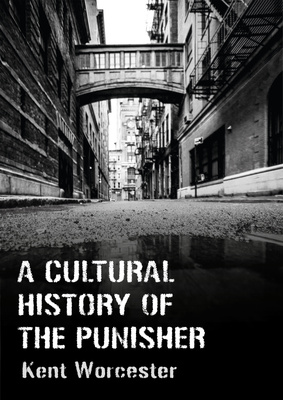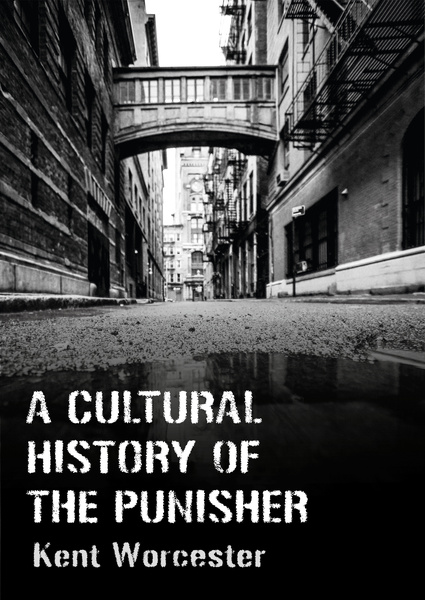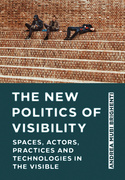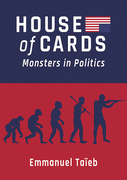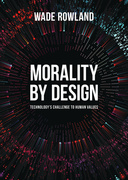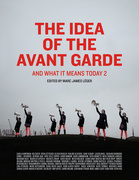A Cultural History of The Punisher (Book)
Marvel Comics and the Politics of Vengeance
A close reading of one of the most murderous characters in popular culture. First introduced in 1974, the Punisher has inspired three movies, a Netflix series, and more than one thousand comics and graphic novels. His stories have celebrated, interrogated, and satirized the politics of vengeance. 8 b&w illus.
Edition
If the Punisher became a valuable piece of intellectual property during the closing decades of the twentieth century, he has become a global icon in the twenty-first. In this pathbreaking study, Kent Worcester explores the sometimes ridiculous and often socially resonate storyverse of the most famous rageaholic in popular culture: Frank Castle, aka the Punisher.
Worcester pays particular attention to nearly five decades' worth of punishment-themed comics and graphic novels published between the 1970s and the present day. These texts provide the material resources for a close reading of the Punisher's distinctive and extreme form of justice discourse. Punishment, after all, is a political and social construct. Violence does not imply or claim legitimacy. Punishment does. To talk about punishment is to ask who deserves to be punished, who decides who deserves to be punished, and what form the punishment should take. All costumed heroes have their political moments; the Punisher is political.
Frank Castle inhabits the most politically engaged corner of the entire Marvel Universe. His adventures should attract our interest for precisely this reason.
Kent Worcester is Professor of Political Science at Marymount Manhattan College, New York, USA.
List of Figures vii
Preface ix
Introduction 1
1. Trauma Culture 29
2. Trigger Happy, or Grim and Gritty 64
3. The Universe Pushes Back 97
4. Negative Dialectics 134
5. The Narratological Impasse 169
6. From Print to Screen to Icon 202
Conclusion: Those Who Need Hurting 235
Appendix 245
Bibliography 249
Index 257
“Kent Worcester has put together a hard-hitting, street-wise, in-depth look at the life and times of Frank Castle. His analysis is trenchant and fascinating, taking into consideration all the myriad aspects of the character and how they have changed over time. This is a rich, important study of a character whose violent ethos and iconography are so much a part of today's cultural zeitgeist.”
'A Cultural History of the Punisher is a guide not just to the history of Marvel’s lethal vigilante, but the culture and history that created him and was created by him. It deserves a spot on the bookshelves of those interested in comics history, whether Punisher fans or not, and those interested in American culture at-large.'
'I detest The Punisher. I mean, I ordinarily have no use for the character. But this book? Whoa.
Excellent writing: trenchant, provocative, at times jaw-dropping. The arguments are needle-sharp, the contexts surprising yet persuasive. Worcester deftly steers clear of defensiveness, righteous dismissal, handwringing, and the oh so many pitfalls that could easily trip up a project like this. In the process, he makes the whole "Marvel Universe" look different.'
“Deep-diving into a publication history spanning multiple decades, Kent Worcester's precise study helps explain the enduring fascination with the Punisher against the backdrop of an evolving sociopolitical climate. This long overdue examination of Marvel's most controversial yet iconic character will provide valuable insight to scholars, students, and fans alike.”
'A sober and illuminating analysis of the character as an intellectual property. [...] A Cultural History of the Punisher illustrates that the Punisher canon is as tonally incoherent as any storied IP, and as philosophically incoherent as the conservative ideology some would claim it represents. Yet absence of a grand design doesn’t diminish the potency of any given story. Frank Castle was traumatized by war, then traumatized further by grief. Basic enough. Whether Castle is an irredeemable agent of empire or a nobly wounded warrior comes down to who is telling the story. Starting from the top, Marvel/Disney has the biggest say in how the Punisher is portrayed. But whatever Mike Baron, Gerry Conway or Kevin Feige have to say about the character, the stories can be read however the reader chooses to read them. They can be taken as satirical commentary, aspirational example or simple diversion. Worcester does not frame this as a problem to be solved; his book is a case study on how it happened. Worcester’s examination is welcome.'
Read the full review on www.tcj.com
'A Cultural History of The Punisher by Kent Worcester [looks] at the popular Marvel character from the refreshing perspective of political science... The true strength and value of this book lies not in theories but Worcester’s close reading of the primary texts. He “harvested nearly five decades’ worth of comic books and graphic novels to show how a binary-minded rageaholic ended up with a lively, sometimes ridiculous, and often socially resonant storyverse.” (p. 14)... Another thing I like about the tone of this book is that Worcester is clearly a fan of what he writes about - comics and pop culture.
Singular character studies in comics studies have been around for a while. From Will Brooker’s books on Batman to recent ones by Ian Gordon (Superman), Brian Cremins (Captain Marvel), Kevin Patrick (the Phantom), Paul Young (Daredevil) and Scott Bukutman (Hellboy). Worcester’s take on Punisher is a much welcomed addition.'
Full review available at ijoca.blogspot.com
'A Cultural History of the Punisher is a welcome addition to comics studies. Specialists and non-specialists alike should appreciate Worcester’s illumination of the inescapably political nature of Marvel Comics’ most famous rageaholic. This is not to suggest that the Punisher pursues or represents a coherent political agenda. Rather, it’s to make the point that the theme of punishment, which necessarily raises questions as to who deserves punishment and who decides this, is itself political, and that the Punisher as a product of a particular cultural moment in American history can help us understand how American society has grappled with these questions.'
Full review available at www.workersliberty.org

